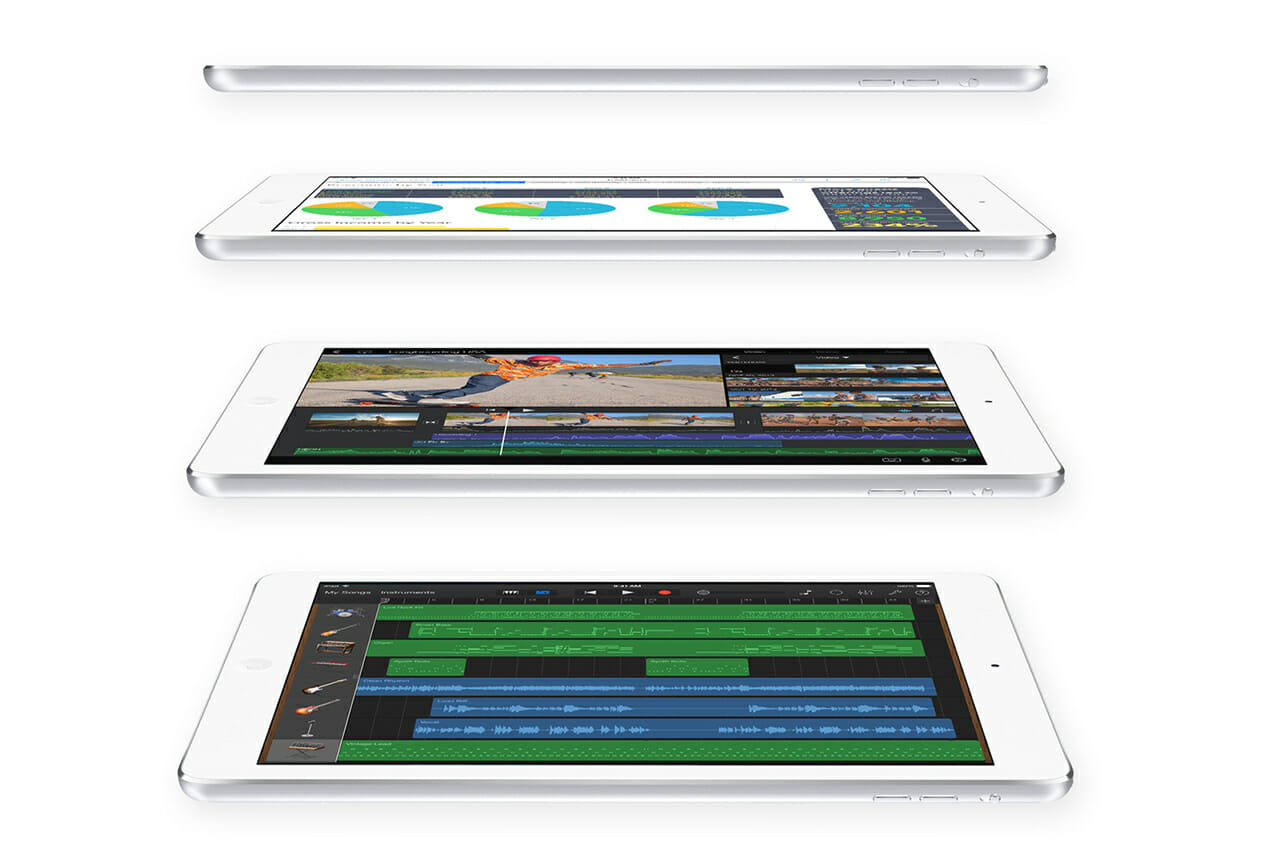October 1st: Amazon releases the Kindle Fire HDX with Mayday technology. Samsung broadcasts the Galaxy Note 3.
October 21st: Nokia and Microsoft each unveil new tablet updates designed to be iPad alternatives.
October 22nd: Apple unveils iPad Air.
So goes the vicious tablet industry.
As Apple competes to keep its head above water, its main change to the iPad mini is a higher display quality, a move it wagers will trump other similar sized tablets’ already bold resolutions.
The iPad Air, on the other hand, yielded numerous more changes than the iPad mini. “iP Air’s” thickness was reduced from the previous model’s 9.4 mm down to 7.5 mm, allowing users to feel more comfortable while holding it. The weight was reduced by more than a quarter from 1.4 pounds to just one pound, making it the lightest full size tablet in the world. Its 9.7 inch retina display is the icing on the cake. Apparently once you’ve seen and used this new version, the old style is truly dissatisfying.
The new “air’s” internal structure was also modified, with a M7 motion coprocessor that assists in the use of apps that track the iPad’s movements. Additionally, the CPU performance of the new iPad Air is twice faster than that of the previous model.
In spite of these new advancements, however, critics and economists alike were largely unimpressed. Technology blogger, Dominic Basulto, severely criticized the new Apple iPads, saying, “Apple’s iPad has peaked. Where’s the innovation?… There’s no longer the big ‘wow’ factor of buying something radically different from Apple . . .” Basulto also claimed that the tablet market is reaching a “saturation point” where further dramatically different advances have come to a screeching halt. “Apple has stopped selling the sizzle, and is now selling the steak,” critics say. In other words, while WiFi and battery length have been improved, those were expected.
Personally, I believe that part of the reason why the tablet industry is becoming increasingly difficult to keep moving is a matter of who does and doesn’t already have iPads, and I’m certainly not alone in this belief. A huge number of families throughout the US and world have iPads, and those who don’t often don’t intend to have any anytime in the near future. Few truly groundbreaking changes have occurred that would make even those who already had iPads feel they have to buy the new one.
The rest of the tablet market, though struggling with similar issues, is catching up to Apple. Nokia, Microsoft, and Amazon are fighting tooth-and-nail to become the new leaders of the tablet industry, and, statistically, Apple is indeed starting to lose market share to these competitors. Sadly for Apple, it is obvious that these companies are starting to make the kinds of changes that Apple once did.
Whether or not Apple’s iPad can only go downhill from here, there is one fact that critics seem to be in unanimous agreement with. Other upstarts such as Amazon have been gradually hacking at Apple’s reputation, and if Apple truly wants to remain the leader of this tough and aggressive market, it’s going to have to step it up.








